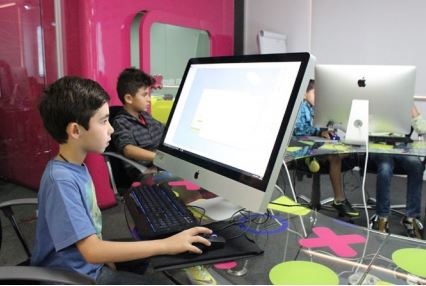
Like many of my generation, the soundtrack of my childhood holidays was comprised of the shrill static shriek of the ZX Spectrum loading games from an old cassette player, punctuated only by my mother imploring me to turn off the computer and go outside for some fresh air. Games back then were a new and scary world, and quickly the idea of the lone player, passively plugging into a game and blocking out the rest of the world, took hold.
Whether that was ever really an accurate picture is debatable, but it certainly isn’t any more. With new consoles such as the Wii, dance mats and smartphones, games have become far easier to pick up and also far more social, attracting more and more young women. Whilst learning to code was a key attraction of my beloved Spectrum and other consoles at the time, that invitation to get creatively involved with games waned in subsequent years. Now it is back with a vengeance. Take the BAFTA-winning game LittleBigPlanet for example, where players are encouraged, whether playing alone or in groups, to create new content using the in-game creation tools and then share their creations with other players online.
All of this is about opening up the world of game creation to those who play them. Rather than passively consuming others’ games, it’s about young people harnessing the power of games to tell their stories, socialise with their friends and, I believe, to understand the world better.
The skills required for game design are applicable to a number of subjects, including maths, English, science and ICT. Calculating the trajectory of a pig being catapulted through the sky requires an understanding of maths; for a game to tell a story you need creative writing; while to make an Italian plumber ‘jump’ over a mushroom involves understanding physics.
BAFTA launched the Young Game Designers (YGD) competition over five years ago to equip young people with the knowledge, skills and confidence to become the next generation of successful game designers. The initiative aims to demystify the creative process of game development and highlight how key qualifications in areas such as maths, physics and computer science, as well as English and art, are essential for those wishing to enter the industry.
Over the years that the BAFTA YGD competition has been running, we’ve had some fantastic entries and seen some incredibly creative and original game designs – with some early winners going on to have extremely promising starts in the industry, including one of our first winners, who earned a BAFTA nomination at our British Academy Games Awards just a few short years later. For me, two of our stand-out YGD entries from last year were 15-year-old Jack Mills from Liverpool, who won our Game Making Award for his game ‘Utopia of Rhythm’ and 14-year-old Camylle Tuliao from Essex, who received a Game Concept Award for her creation ‘Dreams’.